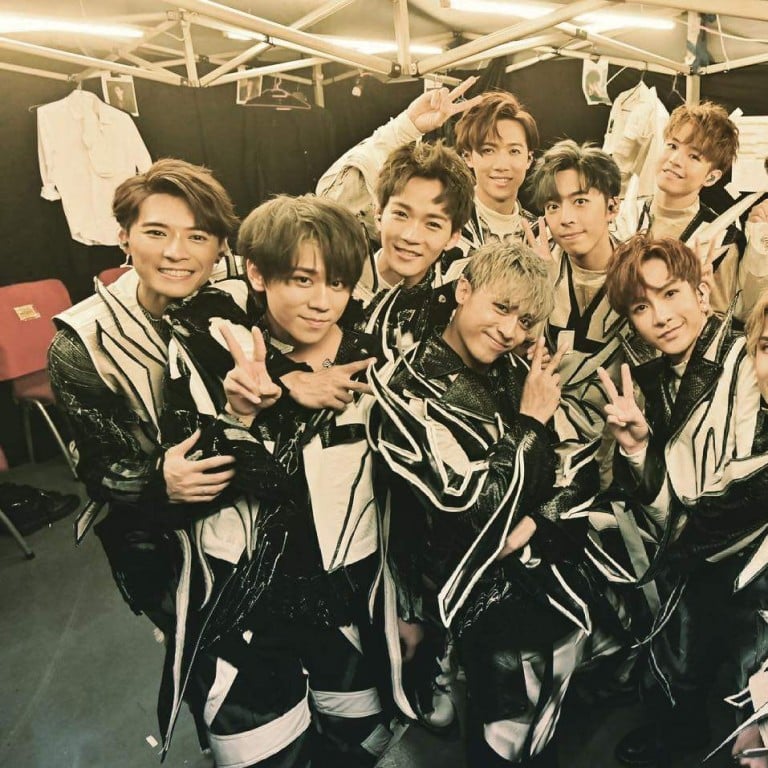
The Canto-pop comeback: Hong Kong’s beloved brand of music returns with a bang
- Canto-pop’s once ‘hopeless’ outlook after age of Four Heavenly Kings is gone
- New fans are upbeat about diversity of themes in today’s songs
Eclipsed by the rise of K-pop and Mandopop, Canto-pop’s popularity went dark for many years, until it found its voice again.
For decades, it felt as if the historical performance on July 1, 1997, at Hong Kong’s handover, also immortalised the peak for Canto-pop: when superstars the “Four Heavenly Kings” and George Lam Tsz-cheung, Alan Tam Wing-lun, Sally Yeh, and Faye Wong delivered a rare hand-in-hand performance.
That night, fans screamed with excitement at a celebration that was internationally televised. After all, they had been headliners in the entertainment industry, icons of Canto-pop’s golden age who made Hongkongers swell with hometown pride.
Their songs, which centred on saccharine romances and love fantasies, had dominated Hong Kong pop culture for more than two decades, providing the backing track to the city’s prosperity and stability.
Mirror, Mirror: why Canto-pop boy band are pure love
Their glamour alone was able to mask the genre’s decline. In fact, by the mid-1990s, record sales for top acts in Canto-pop had begun to fall. Over the next three years, those numbers would plummet by more than half, from HK$1.853 billion (US$236 million) in 1995 to HK$0.916 billion in 1998, according to the International Federation of Phonographic Industry (Hong Kong Group).
It would take more than two decades for that pride to re-emerge, through the voices of a whole new generation of artists.
New generation Canto-pop embodies diverse themes
“With great strength and vigour we welcome the arrival of a new century,” go the lyric lines in Warrior, a rap pop song by boy band Mirror. “I put an end to the closed-minded world. A new world has created a group of chosen youth.”

The group leads a blooming new stream of talented musicians born in the 1990s, who burst onstage, birthing a whole a new generation of fans.
For the Canto-pop industry, they represent hope – the young blood of Canto-pop ready to restore Hongkongers’ love in the genre.
Cultural critic Kenny Leung marks the date of Canto-pop’s magical revival as January 1st, 2021. That’s when Mirror’s Keung To became the youngest person to win two coveted local prizes – My Favourite Male Singer and My Favourite Song – at Commercial Radio’s Ultimate Song Chart Awards Presentation.
The result created a social media uproar, prompting the public to rekindle their impressions of Canto-pop.
Young Hongkongers, fearing for their futures, flock to new Canto-pop stars
Following the 2019 protests and pandemic challenges, residents who perceived a decline in their city’s status felt an urgency to protect Cantonese culture and identity, giving rise to a rare burst of unity.
Leung’s analysis of Spotify’s data showed that the proportion of Canto-pop songs that had made it to the top 200 most-played songs in Hong Kong’s list had risen from its lowest of about 30 per cent before 2020, to almost 60 per cent in 2021. By the earlier part of 2022, it had climbed to almost 80 per cent, making local music the most overwhelmingly sought-after among Hongkongers.
“After 2019, audiences were no longer satisfied with the former order and demanded a new scene,” Leung said.
The sound of a new generation
Canto-pop has found its way back to the playlists of Hongkongers, but not on the strength of old idols such as Eason Chan Yick-shun, Miriam Yeung Chin-wah, and Joey Yung Cho-yee. Amid the political divide in the city, some fans have abandoned these stars for their perceived affinity to the mainland market.
Eason Chan, Jolin Tsai video slammed as China propaganda
Instead, such fans passionately support a fresh batch of artists who have jump-started Canto-pop.
“There is a resurgence of enthusiasm … in a way I have never seen before,” said singer-songwriter Chan Wing-him, who has written for almost every Canto-pop star since 2005 including Eason Chan, Joey Yung, Pakho Chau, Fiona Sit and many more. More recently, Chan has written songs for the new generation of idols including Keung.
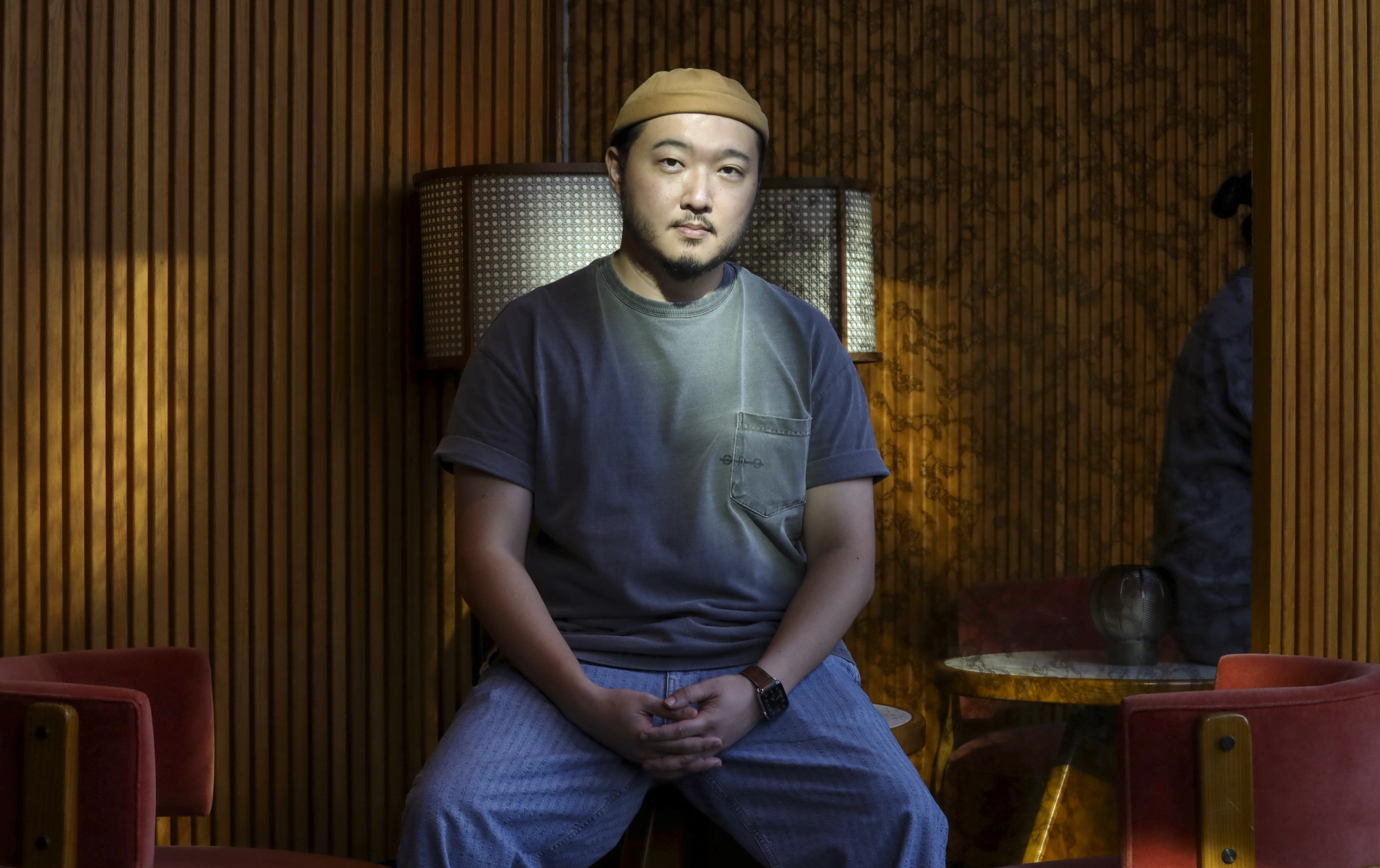
“The new breed of young stars carries a style of their own, be they a band such as Mirror, or [girl band] Collar,” he notes. “There are multi-talented singer-songwriters with distinct personalities such as Serrini, Terence Lam, Gareth Tong and more. There are a lot of collaborations and together, they have created a vibrate dynamic that keeps the scene interesting and draws attention.”
He points to the huge difference in how these emerging musicians rose to fame, answering a consumer market that now has a craving for alternative music genres, such as rock, rap, R&B, hip-hop, rather than the singalong tunes of the past.
Today’s Canto-pop addresses new musical forms and themes, inspired by post-protest social sentiments and the Covid-19 pandemic.
Veteran lyricist Siu Hak, 47, is overjoyed at the long-delayed bloom. The wordsmith, known for his unique soul-searching and philosophic style, went through some lowest periods in 2016 and 2017 when he wrote one or two songs. The music scene was at that point lacklustre, dominated mostly by simple, sad love songs and overshadowed by Mandopop and K-pop.
Hong Kong protests put paid to pop star Eason Chan’s 25-night run of shows
“What used to dominate the market were karaoke songs,” he said. “Although love ballads still have their importance, now it is an entirely different scene. There are many more that show an outlet of public sentiments, explore spiritual issues and so on.”
The latest hit that Siu Hak wrote was anti-war song What The Work Says for Keung, which dropped on his birthday on April 30. Within the first two weeks of the music video’s release, it had racked up more than 4 million views on YouTube.
He also noted that today’s musicians still expressed themselves “within the grey areas” in response to the political climate, exploring ideas in subtle ways.
Local chart-toppers in the last two years emphasised themes of togetherness, recovery, perseverance, and self-improvement. Many addressed sentiments such as bidding goodbyes, and blessings for new beginnings amid departures of residents who view the Beijing-imposed national security law as an encroachment on freedoms.
Among such numbers are Ciao by local band Rubberband, which goes, “Please have a good time every day, whether it’s stability or adventure … I said I’ll see you later, and I promise to see you later.” Other favourites include four-man group C AllStar’s For Those Who Stayed, For Those Who Left, One Promise’s See You Next Year, as well as MC $oho and KidNey’s Hai Gum Sin La, which can be roughly translated as “see you later”.
Cantonese a cappella group C AllStar sing about a vanishing Hong Kong
Chan has written Shape of Wind for singer Yoyo Sham last year, which discusses exploring a different lifestyle, letting go of the past, and embracing the unknown. It’s a mindset that speaks to both social uncertainty as well as the current Canto-pop resurgence.
“Every generation needs its own music to express itself,” said Chan. “And this is the real life we are facing right now.” The times have inspired new music, he added, despite the red tape or obstacles musicians continue to face.
Overcoming the odds, Canto-pop continues to stay relevant to Hongkongers’ sentiments, and retain its cultural significance as the city’s unifying voice.
Canto-pop’s decline: a lack of talent, diversity and leadership
A lack of talent and diversity and the obsolete management styles of record companies caused the nosedive of Canto-pop in the late 1990s, following trendsetting periods of the four Kings – soloists Andy Lau Tak-wah, Jacky Cheung Hok-yau, Leon Lai Ming, and Aaron Kwok Fu-shing.
They had dominated Asian showbiz the early 1990s, and swept up awards for Canto-pop and Mandopop. They also made Canto-pop the hottest trend among Chinese communities globally, with hits such as Never-ending Love, Love You More and More Each Day, I’m Sorry I Love You, The Call of Love, and many other catchy chart-toppers in Hong Kong, Taiwan, and mainland China.
But consumers stopped buying CDs as streaming and digital music platforms emerged. Worse, they faced competition who had snazzier producers and sophisticated marketing: with picture-perfect boy and girl groups, Mandopop and Kpop edged out Canto-pop for a larger market share.
Canto-pop quickly became regarded as a dated, hopeless, dying scene.
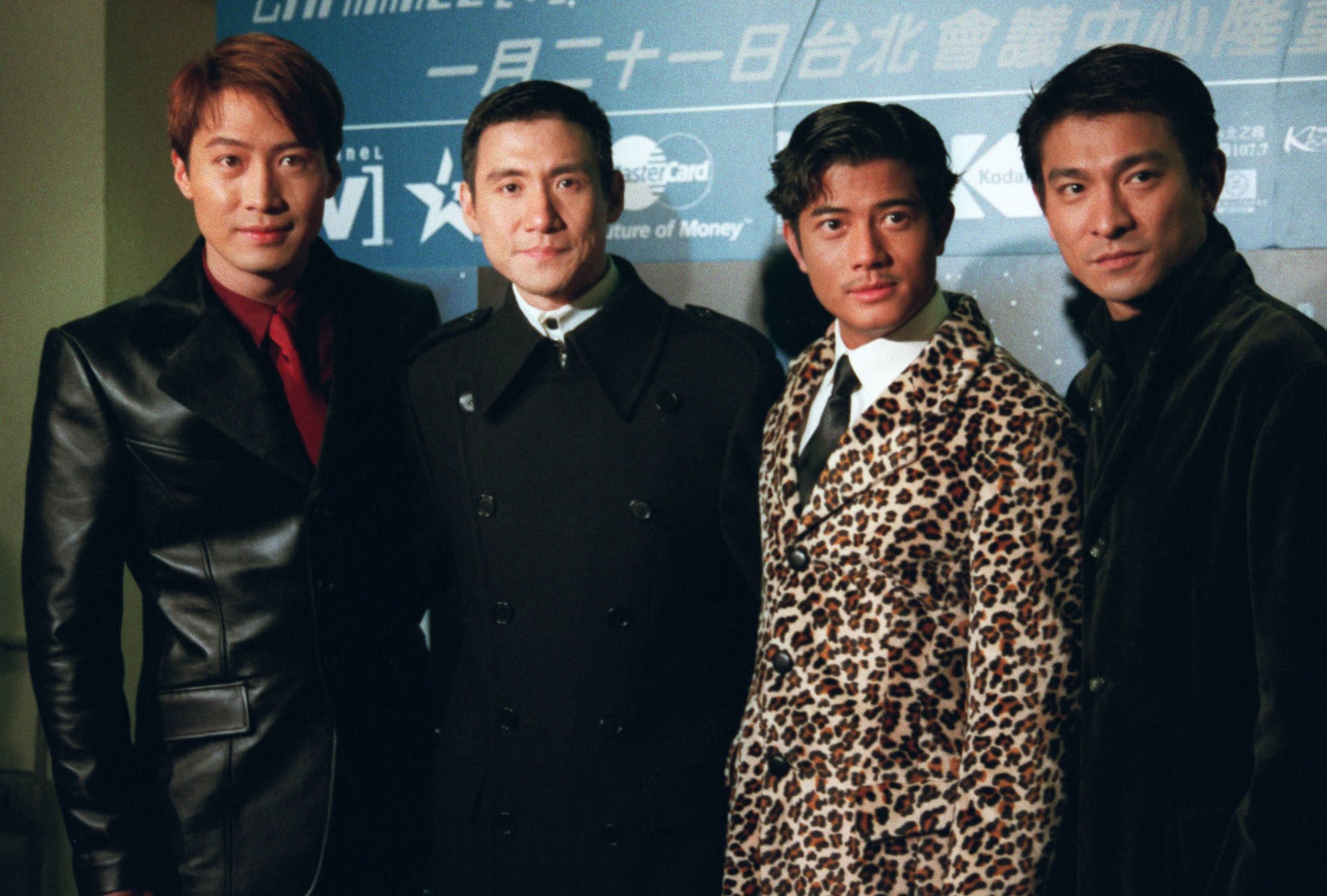
Canto-pop had typically drawn inspiration from love, Chan said. “It was a time when Hong Kong’s economy was prosperous and society was stable. There was not much suffering … Perhaps the only emotion that could connect people’s hearts was love and losing love.”
Songwriters often created music that was easy to sing to, rather than push for creativity or diversity. “Canto-pop was regarded as the genre that allowed people to get into a karaoke room and sing hard, to express themselves. It was for folks to either release their emotions … or try more difficult songs to show off their singing skills.”
Renowned music critic Wong Chi-wah still revels in the sweet melodies of the 1980s, during the days of the city’s rapid economic growth, noting that it was mainstream pop that sang the joys and sorrows of Hongkongers. But, he said: “We should no longer use the old form as a standard to judge the recent creations.”
He believes that no youngster would gravitate to melodies or styles of yore, such as Shanghai Tang, late legend James Wong Jim’s masterpiece.
Even the “godfather” of Canto-pop, James Wong, was well aware of the obsolete future of Canto-pop when he wrote his doctoral thesis in 2003. He stated: “Hong Kong music must rebuild its own strong identity before it can hope to regain its previous miraculous influence.”
Which Hong Kong celebs are stanning Mirror star Keung To?
Through the 1980s, Hong Kong’s complex cultural make up and vast array of new Chinese immigrants gave rise to multiple forms within its local music scene. That diversity represented Hong Kong to its core, and shaped its local identity with Cantonese songs. It became a channel through which generations of locals explored their cultural identity, social expression and personal desire, to supplement the lack of political participation and cultural significance.
But since the 1990s, James Wong argued, Canto-pop shed its unique characteristics, leading him to conclude that “its future looks bleak”.
Professor Stephan Chu Yiu-wai, director of Hong Kong studies at the University of Hong Kong, shared James Wong’s view in his research paper, and points to 1997 as the beginning of a Canto-pop’s slide.
Chu said he believed the success of the four kings had allowed the industry to “kick the can down the road”.
But that could not last. Record companies lacked vision in nurturing new talent for the industry, clinging on to its formula made possible by the kings and their predecessors, such as late megastar “Gor Gor” Leslie Cheung Kwok-wing and “Madonna of the East” Anita Mui Yim-fong.
Canto-pop seemed boring for a long time
The diminishing influence and popularity of broadcaster TVB’s prime popular music programmes was arguably the straw that broke the camel’s back.
In 2009, TVB fought with Hong Kong Recording Industry Alliance Limited (HKRIA) over copyright fees and banned singers from the four big music labels, including Universal, Warner, Sony, and EMI, from programmes. It ended an era during which the city’s television sectors enabled the broadcast medium to boost the success of local music.
As the page turned into a new millennium, genius lyric masters Albert Leung Wai-man, known as Lam Chik, and Wyman Wong Wai-man, have created many memorable legends for the generations. But these were not enough to revive a shrinking, waning market.
Famous for his signature love songs, Lam Chik’s writings had touched the hearts of countless fans. He managed to churn out some golden hits that touched on life philosophies, which was regarded as less mainstream topics, such as Infinite Beauty of the Setting Sun, and Shall We Talk.
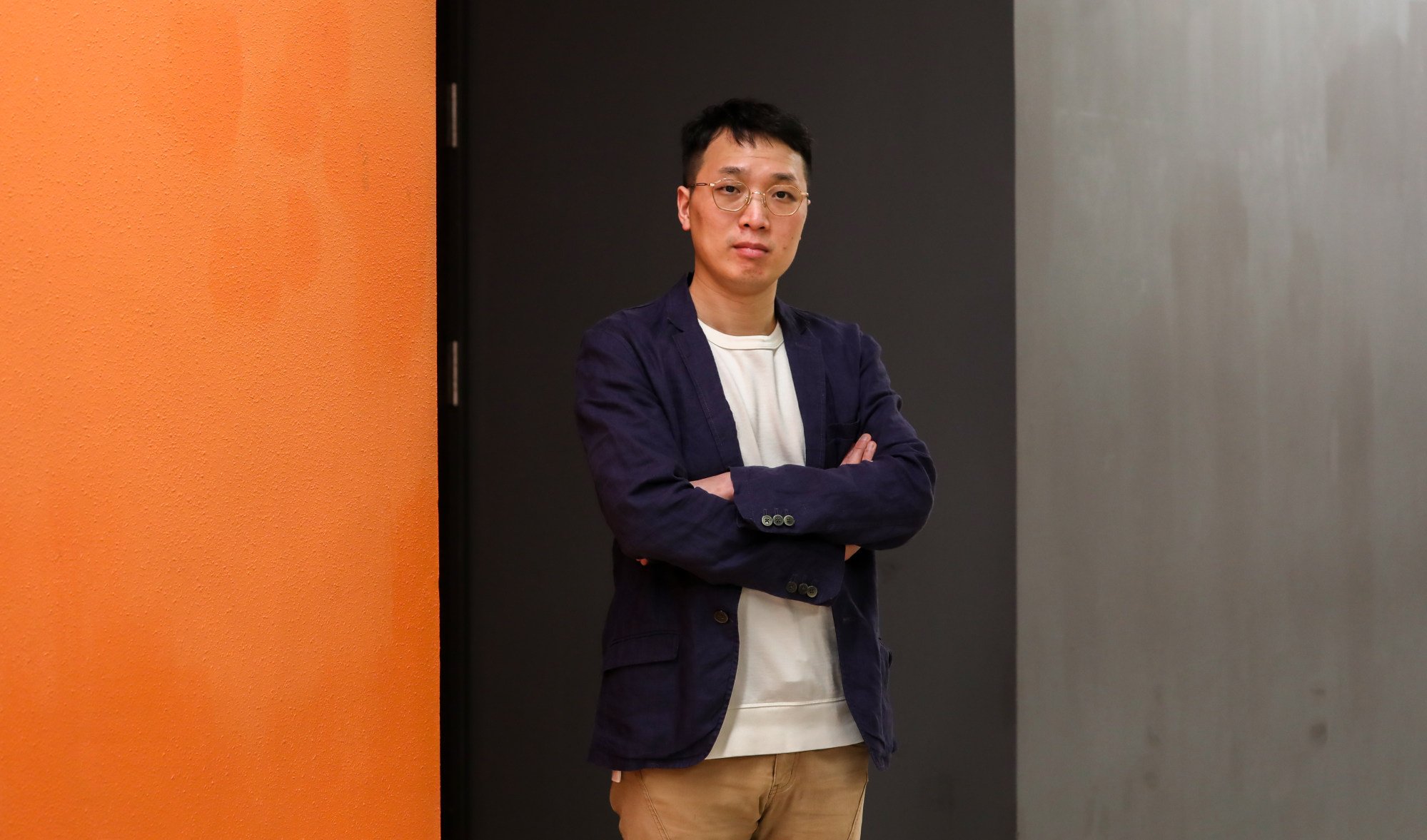
Gary Tang Kin-yat, assistant professor of Hang Seng University, has found eight leading artists dominating almost 30 per cent of the awards from 1997 to 2021, after analysing 25 years of results in four major award competitions held by Commercial Radio, RTHK, Metro, TVB.
They included Andy Lau, Eason Chan, Joey Yung, Miriam Yeung, Hacken Lee Hak-kan, Leo Ku Kui-ke, and so on.
Twins, a two-girl group, had been formed as the shrinking industry tried to appeal to a younger, school-age teen market, but only managed to make a short-lived impact.
Among them, Eason Chan, 47, and Joey Yung, 41, were widely regarded as “the last megastars” of Canto-pop, after which there was no succession planning.
“Local music fans have stressed that Hong Kong pop music had been very boring and monotonous over the past decade or so,” said Tang, who was conducting a focus group study recently for an upcoming book on local music.
His data showed it had been difficult for new artists to make significant breakthrough to compete with the big stars backed by resourceful companies with strong commercial muscle, even though they were encouraged by the Newcomer Award.
“In other words, the so-called ‘renaissance’ of Hong Kong pop music is not something that happened out of the blue in the last two years. Some of the new faces that have become so popular had actually been brewing earlier. It is only in the past two years that they have made their mark with their continued commitment and dedication.”
It was not until the mid-2010s that the previous wave of the leading singers receded, and new talents had more room to gain public attention, he said.
New technology, new culture are a breakthrough for Canto-pop
While record sales worldwide plummeted as consumers entered the streaming age, the era has also brought with it many opportunities for emerging talent.
Tang said music platforms such as Spotify and Apple Music have reshaped Hong Kong’s music industry by fostering a new way of consuming music – retaining its original purpose of being listened to – rather than turning it into karaoke products.
“These media platforms also allow alternative or underground music to reach the mainstream, while the audiences can easily discover new creations to their liking. At the same time, they provide valuable reference to music companies to evaluate the public’s taste,” Tang said.
He said indies had always made significant impact on the Canto-pop industry, and would have a more vital role in the years to come. In recent years, Chan Wing-him said leading record labels had begun to seek a way out by accepting more independent music that tugged at Hongkongers’ hearts.
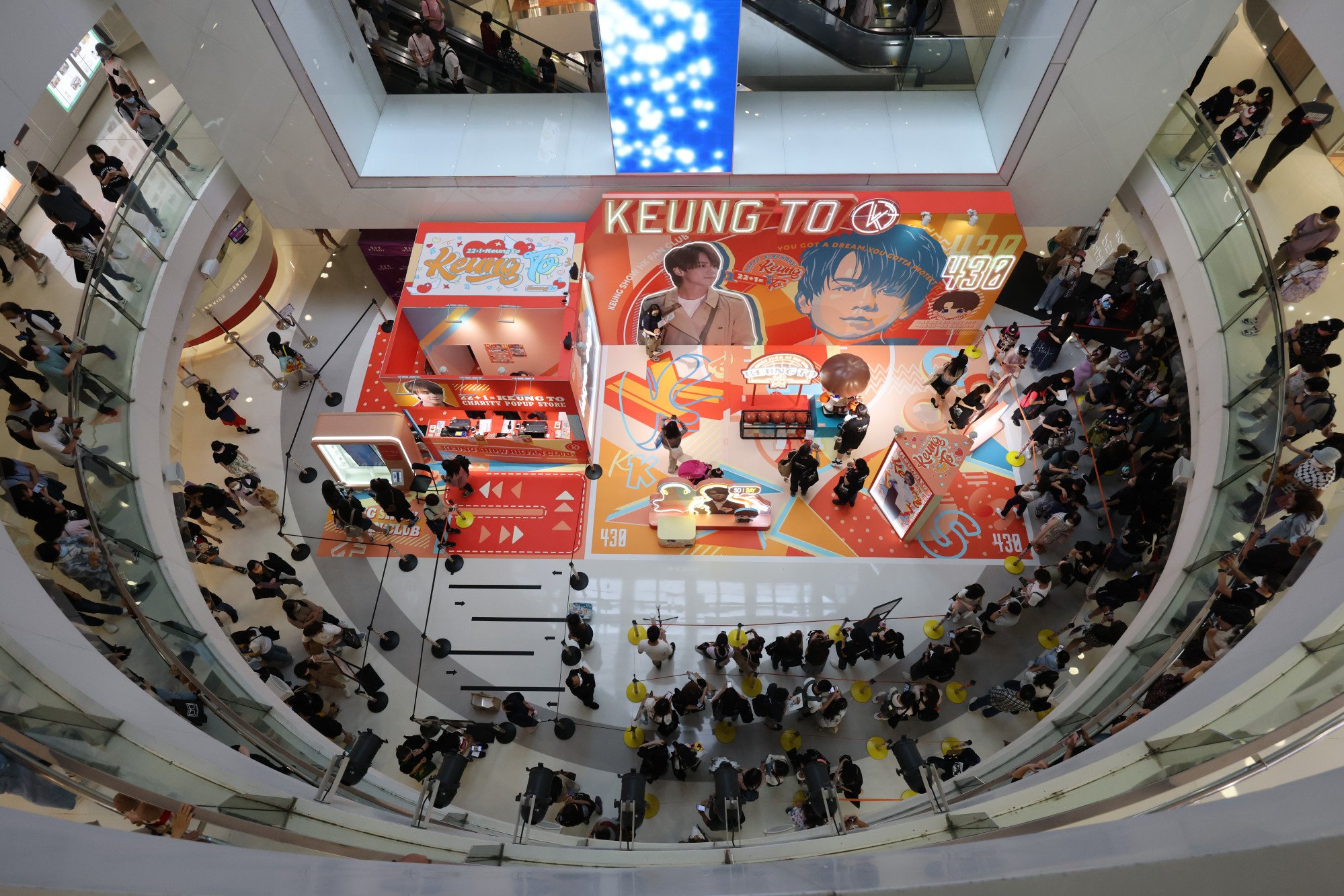
One example was Warner Music Hong Kong Ltd signing a new stable of stars including singer-songwriter Panther Chan, whose style carries the indie spirit, and singer Michael Cheung Tin-fu, known as MC Cheung, a winner in ViuTV’s reality talent contest King Maker in 2019 after Mirror’s Keung To won the previous year.
ViuTV’s music shows, including Chill Club, have offered these groups of artists new platforms to showcase their music more fashionably and endearingly than the traditional TVB shows, which usually spotlighted only to stars close to the broadcaster.
The new wave of young artists is also eager to have crossover collaboration with each other across occasions and different social media platforms, sometimes just randomly doing live performances on Instagram, introducing new artists and compositions to each others’ fans.
For example, Keung To publicly gives props to Gareth Tong and Tyson Yoshi, among others, getting his fans to pay attention to his two lesser-known musical peers. Soloists Serrini and Terence Lam are known for their friendship and often interact on social media, with their many fans supporting both.
Move over, Mirror? 5 of Hong Kong’s rising music stars
The new wave of artists worked more as a collective, Chan said, compared with former, more competitive dynamics, when competing music companies forbade artists from working together, and even boycotted each others’ events.
“They are passionate about learning from each other and are eager to improve. Together they have created a larger market and an engaging music scene. Ultimately, everybody will be the winner.”
“Given some time, when the right time comes, Canto-pop will be glorious again.”

